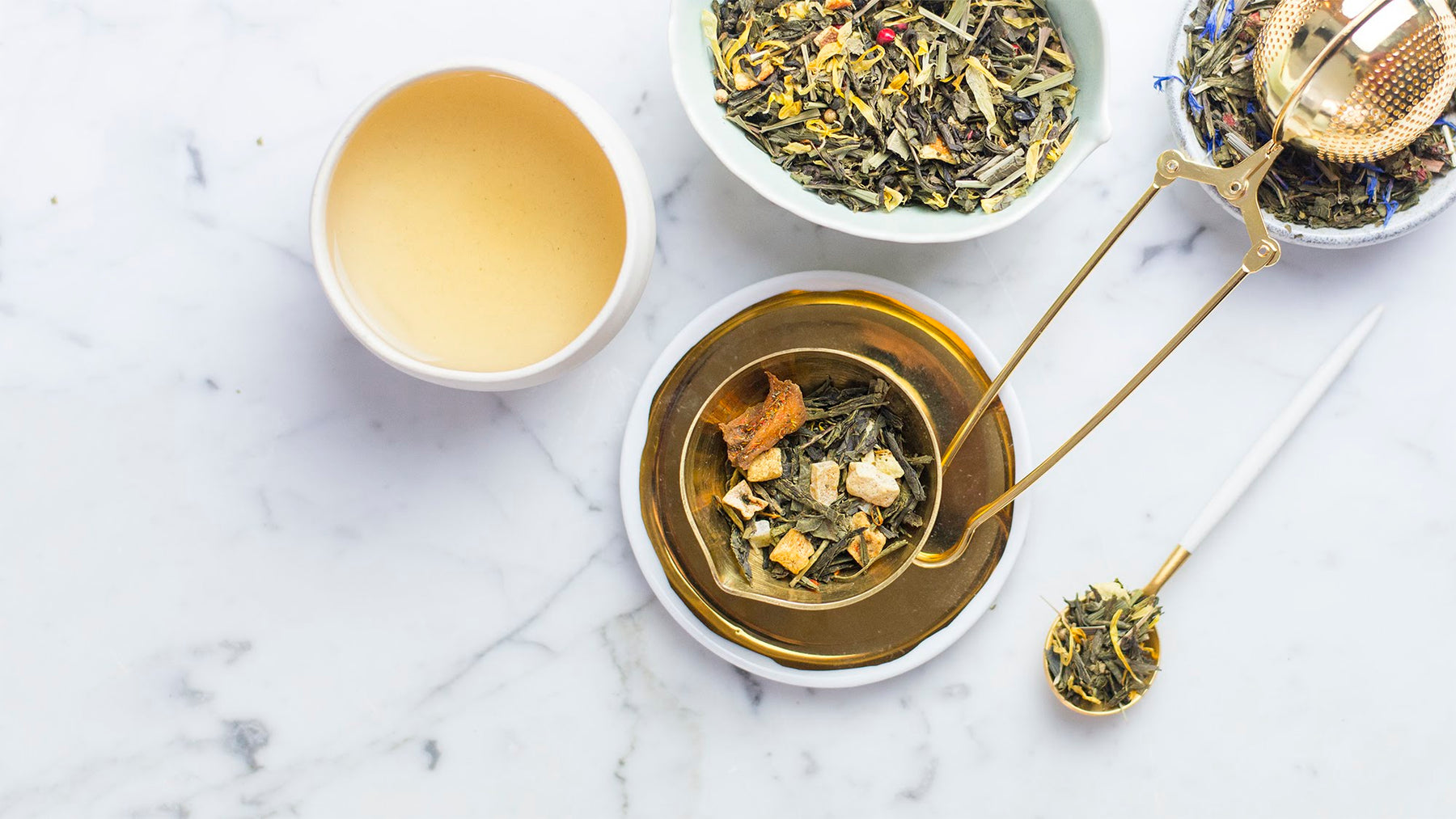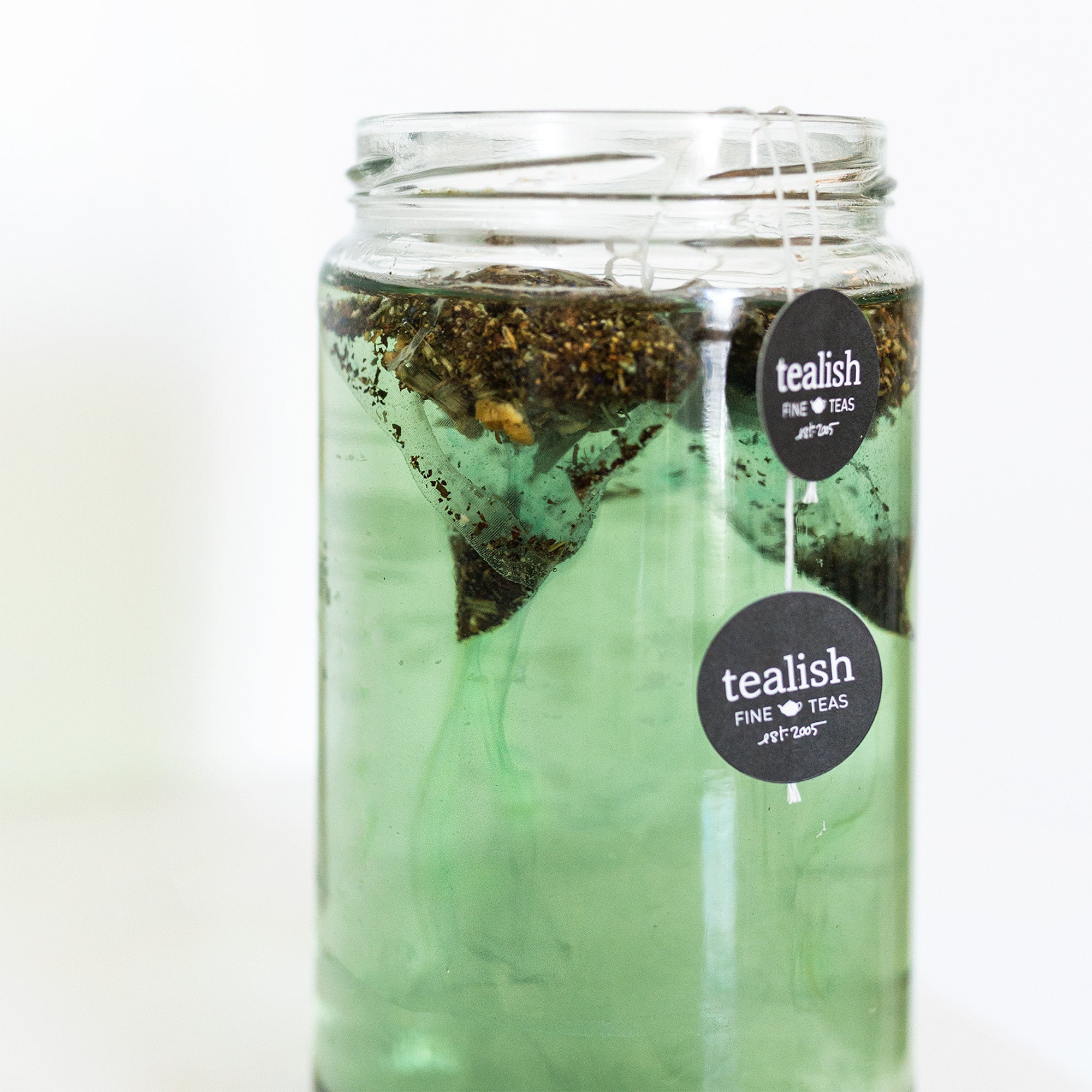
Green Tea 101 : Regions, Types and Health Benefits
Green tea, with its rich history and numerous health benefits, has become a beloved beverage worldwide. From the lush tea gardens of China to the serene plantations of Japan, green tea is a treasure trove of flavours, aromas, and healthful properties. In this guide, we'll delve into the various types of green teas, their distinctive regional origins, and the incredible health benefits they offer. We often get asked, with so many loose leaf green tea options - Which Green Tea is Best for Me? Different regions and processing effects flavour as well as caffeine levels. Read below for tasting notes on each different type of Green tea.
Types of Green Teas
-
Sencha (Japan)
- Description: Sencha is the most common type of Japanese green tea. It is characterized by its vibrant green leaves and a mild, grassy flavor profile.
- Health Benefits: Packed with antioxidants like catechins, Sencha helps boost metabolism and supports cardiovascular health.
-
Matcha (Japan)
Description: This vibrant green powdered tea is made by grinding shade-grown tea leaves. It's famous for its earthy, slightly sweet flavor.
Health Benefits: Matcha is a powerhouse of antioxidants, providing a calm yet alert mental state and aiding in detoxification. -
Dragonwell (Longjing) (China)
- Description: Hailing from the Zhejiang province of China, Dragonwell (or Lung Ching) tea features flat, sword-shaped leaves and a nutty, sweet flavor.
- Health Benefits: Known for its high concentration of amino acid L-theanine, it promotes relaxation and focus.
-
Gunpowder (China)
- Description: Originating from Zhejiang, China, Gunpowder tea is named after its rolled-up, pellet-like appearance. It offers a bold, smoky flavor.
- Health Benefits: Its robust catechin content aids in weight management and boosts the immune system.
-
Gyokuro (Japan)
- Description: Gyokuro is a shade-grown Japanese green tea with a sweet, almost umami taste. It's one of the most prized varieties in Japan.
- Health Benefits: Due to its shade-grown nature, Gyokuro is rich in chlorophyll, which supports natural detoxification.
Regional Origins
-
China
- Notable Green Teas: Dragonwell, Gunpowder, Bi Luo Chun, Huangshan Maofeng
- Distinctive Characteristics: Chinese green teas are known for their diverse flavor profiles, from nutty and sweet to smoky and vegetal.
-
Japan
- Notable Green Teas: Sencha, Matcha, Gyokuro
-
Distinctive Characteristics: Japanese green teas are typically vibrant and slightly astringent, with a focus on umami flavors
Health Benefits of Green Tea
-
Rich Source of Antioxidants
- Green tea is loaded with powerful antioxidants like catechins, which combat free radicals and reduce oxidative stress.
-
Boosts Metabolism and Aids in Weight Management
- The combination of caffeine and catechins in green tea can help increase metabolism, promoting weight loss and fat burning.
-
Enhances Brain Function
- The presence of L-theanine in green tea promotes relaxation without drowsiness, leading to improved focus and mental clarity.
-
Supports Heart Health
- Regular consumption of green tea has been linked to reduced risk factors for heart disease, including lower LDL cholesterol levels.
Green tea is more than just a beverage; it's a centuries-old tradition brimming with a myriad of flavors and benefits. Whether you prefer the delicate sweetness of a Japanese Sencha or the boldness of a Chinese Gunpowder, each type of green tea offers a unique experience. So, embark on a journey through these aromatic green teas and embrace the holistic health benefits they have to offer. Cheers to a cup of well-being!





